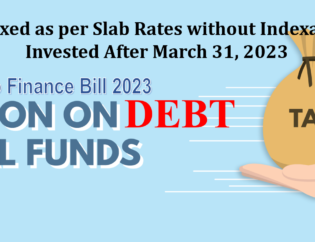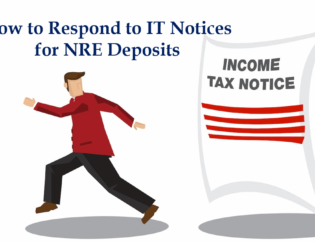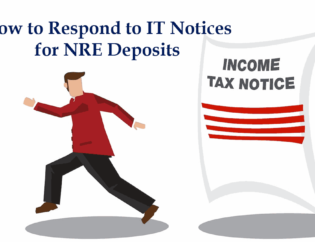
On July 5, the First full-time Female Finance Minister of India, Ms. Nirmala Sitharaman, presented the budget in the Parliament. While it may be a mixed bag for many, the one category it affect the most, and that too positively, is Non- Residents (NRIs/ PIOs).
We have analyzed all the budget proposals and selected top 11 changes that affects non-residents the most as follows:
1) Substantial increase in Surchage for Super Rich
The surcharge is proposed to be increased from 15% to 25% and from 15% to 37% for persons earning 2-5 crores and 5+ crores respectively.
Effect Analysis:
An Individual earning 2-5 crores will see the marginal tax rate go up from 35.88% to 39% and person earning more than 5 Crores from 35.88% to 42.744% – HUGE increase.
The last time India had seen individual income tax rate higher than 40% was in 1991-1992. However, the tax rate for companies has been kept at 25% only with maximum surcharge of 12% i.e. effective rate of 29.12%. However, they would have to pay Dividend Distribution Tax additionally.
2) Gift Non-Resident deemed to accrue in India
For gift to an NRI, the taxability of amount would be determined by origin (India) and not destination (resident country of NRI). From July 5, 2019, any taxable gift of money or property to NRI would be deemed to accrue or arise in India and would become taxable in India.
Effect Analysis:
This change was proposed to plug the loophole in the gift tax provisions of the Income Tax Act where a resident giving gift to non-residents outside India who are not related. However, practically, under FEMA, the banks have been remitting money under LRS only if the gift is to a close relative. Also, the definition of close relative is very narrow under FEMA than the Income Tax Act. Gift to NRI close relatives would continue to be exempt from tax in India. The proposed change is for gift by resident to NRIs that are not relatives.
3) Failure to deduct TDS on payment to an NRI may not be considered a Default
If any payment is made to Non-Resident without deducting TDS, It is proposed that the payer (resident – deductor) can still claim the payment as expenditure and he won’t be treated as defaulter if the payee (non-resident) has shown such Income in his income tax return, paid the taxes and submits a CA certificate. However, the payer would need to pay interest on the TDS amount until income tax return is filed by the NRI.
Effect Analysis:
This is Exteremely important change and the need of the hour for NRIs. Until now, there was no clarity about “any payment” and complete disregard of such provision for the personal payment e.g. rent paid for a residential property owned by NRI. Many times, residents were extra cautious and/or avoiding transactions with NRIs due to potential income tax liabilities and proceedings. With this proposed change, the transactions with NRIs could be done easily.
4) Online Application for Lower / Nil TDS certification:
For any payment to NRI, the TDS was required to be deducted at the marginal tax rate on the amount of transaction, without taking into consideration of the gain/income from the transaction. Also, the procedures for claiming lower or nil deduction of TDS was manual, time consuming and cumbersome so many NRIs were allowing deduction of TDS on the gross amount. This was a major issue for NRIs.
Now, a resident person will be able to file an online application seeking determination of the TDS amount for the intended transaction with NRI.
Effect Analysis:
This provision would save a lot of time and money for NRIs. Now, NRIs selling immovable properties would be able to file an online application for determination of TDS amount and able to complete the transactions quickly. As the application is to be filed online, even if city/town/country is changed, there won’t be any requirement to contact the jurisdictional officer, who may or may not be busy or have knowledge about NRI taxation. I presume this will be managed by a central team with knowledge and experience of handling NRI taxation matters.
5) Prosecution limit for net tax payable increased
If a person (e.g. NRI), who has paid the taxes but has not filed tax return was subject to prosecution, if the net tax payable was upto R. 3000. That limit is now been increased to Rs. 10,000.
Effect Analysis:
An NRI having any income in India (interest, property sale, etc.) knows that the TDS on the income is deducted. However, he may think that as he has paid the tax in India and as he is including the Indian income while filing tax return in country of his residence, he may not need to file the tax return in India. If the net tax payment amount exceeds Rs. 3000, he was also subject to prosecution. Usually, in a bigger transaction, any minor rounding off error may also result into net tax liability of over Rs. 3,000. As a result, the limit has been increased to 10,000.
6) IFSC as Investment Destination for NRIs
A number of additional incentives are announced for IFSC in this budget:
- 100% deduction from profit of a unit set up in IFSC for 10 consecutive years
- Tax exemption of interest earned by NRIs on loans to a unit in IFSC
- No capital gains tax on transfer of specified securities on a recognized stock exchange in IFSC
- No Dividend Distribution Tax on the distribution of dividend by a company or mutual fund in IFSC
Effect Analysis:
Technically, all the investment income – interest, dividend, capital gain, would be exempt from tax if the NRI invests in India through IFSC. Also, if an NRI sets up a business in IFSC, the profit would be tax free for 10 years. This gives a HUGE opportunity for NRIs to invest in India, earn better return and NOT pay tax. However, the rules needs to be complied with and procedures to be followed.
7) Merging of NRI with FPI and loosening of norms for FPIs
NRI Portfolio Investment Scheme (NRI-PIS) will be merged with Foreign Portfolio Investment (FPI) Route. Also, the KYC requirement for FPI will be rationalized and streamlined for FPIs to make it more investor friendly without compromising the integrity of cross-border capital flows.
In addition, the statutory limit for FPI investment in a company to be increased from 24% to the sectoral foreign investment limit. And, the FPIs will be allowed to invest in listed debt securities issued by REITs and InvITs. In addition, the public shareholding limit has been increased from 25% to 35%.
Effect Analysis:
There has been a lot of confusion about whether NRI / PIO can register as FPI for investing in India. There has been a lot of inconsistency among rules, notifications and circulars about whether an NRI can register as FPI. With this change, now NRIs will be allowed to register and invest as FPI.
Also, with loosening of norms, increasing public shareholding limit, increasing FPI limit in a company and merging of NRIs and FPIs, as well as tax free investment in India if invested from IFSC, the foreign investment in India will increase.
8) Merging of Aadhaar & PAN
India is following on USA’s footsteps as now it has allowed interchangeability of PAN and Aadhaar, just like SSN and ITIN in USA. The income tax return would be filed using Aadhaar and Aadhaar can be given where PAN is required for any high value transaction. Also, the PAN and Aadhaar number needs to be linked and any PAN that is not linked with Aadhaar will be made inoperative. The person receiving documents would be responsible to ensure the correct quoting and authentication of PAN/Aadhaar.
Additionally, NRIs (Indian citizens) would not have to wait for 180 days to get an Aadhaar. They would be eligible to get the Aadhaar card immediately on entering India. However, for a PIO (foreign national) would need to reside in India for more than 6 months to apply for an Aadhaar.
Effect Analysis:
Non-residents having valid Indian Passport can enter high value transactions without having to wait for PAN card and they won’t have to wait for 180 days for getting their AADHAAR card. This will expedite the transaction completion and saves a lot of waiting time for getting PAN or Aadhaar or both for entering into a transaction.
9) Compulsory Filing of Return:
Following persons will now be required to compulsorily file income tax return, even if the taxable income is less than 250,000.
- Person depositing more than 1 Cr in current account in a year
- Person spending 2+ lakhs on foreign travel
- Person spending 1+ lakh on electricity bill a year
- Person claiming rollover benefit of capital gain tax by investing in other property
Effect Analysis:
An NRI would need to check every year whether they qualify in one of the criteria that require mandatory filing of income tax return in India. It is always recommended to file the tax return if you have entered into a high value transaction or if the information pre-filled return suggest, it is better to file the tax return.
10) IT Returns Preparation and Scrutiny Processing:
The Income Tax department has been getting the information from various banks, financial institutions, stock exchanges, mutual funds, Companies, etc. Until now, these information were used to highlight any discrepancy and accordingly, notices were being issued. Now, the income tax department will make all the information available to the tax payers and will pre-fill the tax return. The pre-filled income tax returns will contain details of salary, capital gains, bank interest, dividend, deductions, etc.
The returns for scrutiny will be selected electronically and faceless assessment will be carried out. A central Cell will be set up and will work as the single point of contact between taxpayer and the department. Notices will be issued by central cell without disclosing the name, designation or location of assessing officer.
Effect Analysis:
Income tax return will be prepared and submitted quickly and correctly due to pre-filled returns. It would result in less discrepancies in tax return filing, less changes of disputes and lesser appeals and procedural hurdles and speedy execution or closure of cases.
Also, faceless online processing would bring in more transparency and reduce questionable practices and corruption. In addition, the tax return would be reviewed by an experience assessing officer who has specialized knowledge in the respective field of the tax payer (e.g. International cell processing NRI returns).
11) Black Money Act:
The Black Money Act proposes to include NRIs who acquired unreported foreign assets while they were residents. As a result, residential status during the year in which the income is earned or the asset is acquired would be the determinative factor and not the current residential status.
Effect Analysis:
Income Tax will have power to take action against those who were residents at the time of acquisition of the undisclosed asset and then later became non-residents. This will help the government in recovering undisclosed assets outside India where tax evaders have left the country and became an NRI.









for PIO who is US citizen, without an Aadhar – would his PAN be inoperative? #8 above??
For an NRI, Aadhaar is not required so no need to link the PAN with Aadhaar. It will still be active. However, your residential status needs to be an NRI in the income tax database. Thanks.